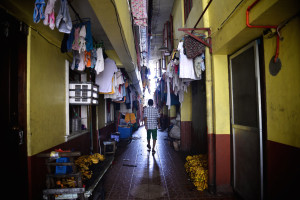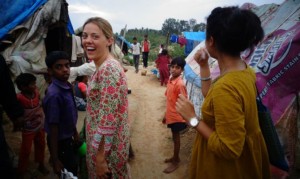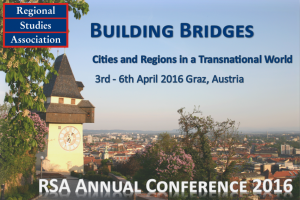Unilever ~ Young Entrepreneurs Are Changing The Game In India’s Slums
Katerina Kimmorely is the co-founder and director of Pollinate Energy. Based in Bangalore, the company sets up networks of micro-entrepreneurs to distribute sustainable technology (like solar lights and clean cookstoves) on payment plans to India’s urban poor.
n 2012, India experienced the largest blackout the world has ever seen. Over 700 million people, 10% of the world’s population, were plunged into darkness. The story grabbed headlines, but the daily reality did not: there are 400 million people in India with no access to electricity. Having just spent several months in Bangalore’s peripheral slum communities witnessing this hardship firsthand, the blackout was the catalyst for Katerina, 27, and her team to found Pollinate Energy.
Read more: https://www.globalcitizen.org/young-entrepreneurs-are-changing-the-game-in-india/
André Fernandes ~ Renewable Energy In Slums
Renewable energy is a great opportunity to decrease costs, amplify the access to electricity in underserved areas and generate jobs/income opportunities in the communities.
In Brazil, it’s common to see in many slums illegal access to electricity, as people say “gato”. In addition to be illegal, the lack of a proper installation let the whole slum vulnerable to accidents, like a fire.
And in addition to the solar energy, what other sources of energy can we imagine for slums?
From the feedback given by Laurent – see on the comments – this idea also connects directly to sanitation management, that’s another huge challenge to face in slums. And IDEO has already worked on a business model for sanitation management in Ghana. Check here: http://fr.slideshare.net/jocelynwyatt/ghana-sanitation-opportunities
Considering this IDEO business model on sanitation management, what else could we consider?
Read more: https://challenges.openideo.com/renewable-energy-in-slums
NDTV ~ Waterless Toilet By IIT-B Professor Hopes To Put An End To Open Defecation In Rural India, Slums
![]() The Dry San Hygienic Rural Toilet is a waterless system where waste doesn’t have to be flushed. Prof Dr Kishore Munshi, senior professor and former dean of the Industrial Design Center at IIT-B, has developed the Dry San to reduce open defecation, improve hygiene, and help vulnerable sections including women and children.
The Dry San Hygienic Rural Toilet is a waterless system where waste doesn’t have to be flushed. Prof Dr Kishore Munshi, senior professor and former dean of the Industrial Design Center at IIT-B, has developed the Dry San to reduce open defecation, improve hygiene, and help vulnerable sections including women and children.
“The project has been developed for rural India, targetting mainly the farming community with the basic premise that there is dearth of water in most rural areas. Thus, the flush toilet cannot be part of the solution.
Therefore, an autonomous solution based on water-less or minimal water usage was invented,” said Prof Munshi. The Dry San has been developed after garnering financial support from the Ministry of Drinking Water and Sanitation, along with CTech, an IIT-B incubated designed company. It comes in various dimensions, along with an easy manual.
Read more: http://www.ndtv.com/waterless-toilet
Building Bridges: Cities And Regions In A Transnational World. Regional Studies Association Annual Conference 2016, Graz, Austria
Throughout history, cities and regions have been cornerstones of economic, social and cultural institution building and centres of communication and trade across borders of empires and nations. In a globalised world dominated by multi-level governance and declining economic and political significance of the nation-state, cities and regions are becoming ever more so important in building bridges across nations, supra-national unions, and even continents.
These challenges surpass the usual aspects of integration: it is not sufficient to reduce barriers for the mobility of labour, goods, services and capital, to create a homogenous competitive environment, and a solid monetary system. What is needed in addition are more elements of a new regionalism, which is based on non-hierarchical relationships, on self-government, and on the creation of flexible alliances leading to interregional transnational cooperation. The development of a region is affected by its competitive and complementary relationships with other increasingly distant regions.
Read more: http://www.regionalstudies.org/building-bridges-cities
George Context ~ Affordable Housing And The Future Of London As A Creative City
The question of how to mitigate, let alone solve, the problem of London’s cost-of-breathing crisis, sorry, cost-of-living crisis seems inescapable, like a perverse and all too real Millennium Prize Problem. It appears as though we have bound so far down an economic cul-de-sac, justified on the quasi-religious neo-classical truths of supply and demand and global competition, that advertising a £450,000 one bedroom flat as ‘ideal for first time buyers or as a pied-à-terre’ is apparently perfectly acceptable. The problems this plight presents are real and well discussed – homelessness, families evicted by unscrupulous buy-to-let landlords (who are perhaps second only to investment bankers in the UKs Most Despised Persons list), and overcrowding. What estate agents gleefully herald as ‘gentrification’, the newly elected Labour leader evocatively decries as ‘ethnic cleansing’. However, I want to consider this housing crisis from an alternative perspective, one informed as much by my career as a musician as it is by my academic desire to understand the operation, and consequences of, contemporary creative markets in urban contexts. I want to question the cultural ramifications of this housing crisis; the artistic implications of a farcical situation whereby, for example, Help to Buy is required by magic-circle lawyers – as per a great friend of mine recently. In short, what does the housing crisis mean for art, and for the future of London as a creative city.
Read more: https://www.opendemocracy.net/george-context/affordable-housing-and-future-of-london
Raul Dancel ~ Dreaming Of Own Home In Manila’s Slums

A row of decrepit apartments built on government land in Baclaran, a sprawling poor district south of Manila. In 1946, there were about 46,000 slum dwellers in Manila. Now, metropolitan Manila is host to about 2.1 million slum dwellers. -ST PHOTO: RAUL DANCEL
MANILA • I grew up in one of the many slums scattered all around metropolitan Manila. Ours was just south of Manila, in Baclaran, a district known for a sprawling shrine dedicated to the version of the Virgin Mary known as the Lady of Perpetual Help.
It was fitting, really. I always felt our neighbourhood was in perpetual need of help. We lived in one of the upper floors of a row of decrepit two-storey flats our landlord somehow managed to build on land he did not own. It was government land.
It was in the middle of thousands of shacks that were really nothing more than cardboard, plywood and tin sewn together with nails, chicken wire and adhesive tape covered with galvanised steel and held in place with cement blocks, used tyres and other heavy debris.
Read more: http://www.straitstimes.com/opinion/dreaming-of-own-home-in-manilas-slums






